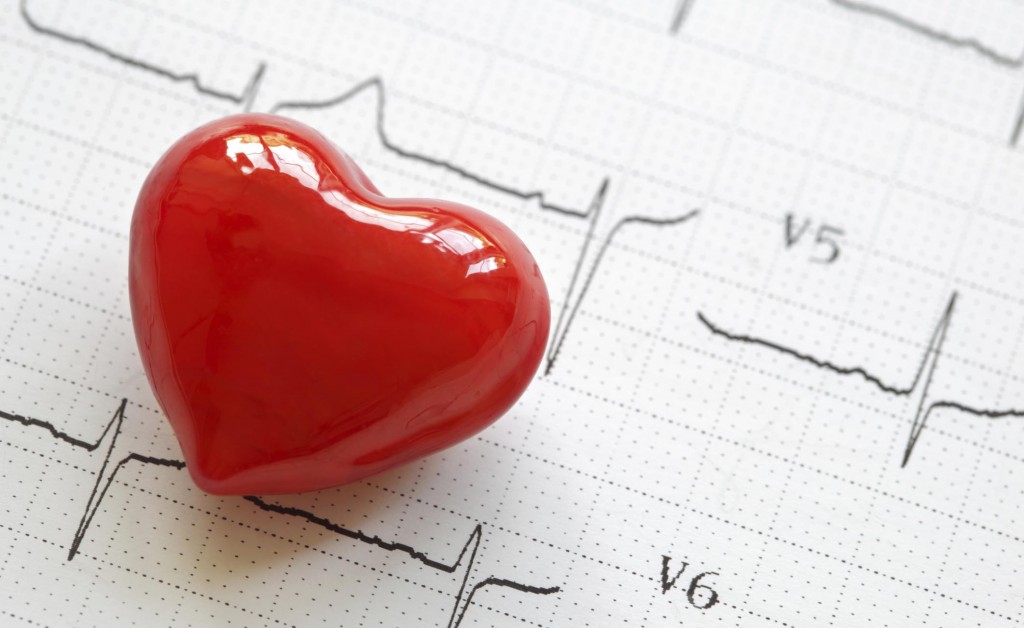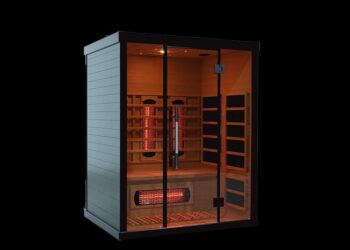A healthy human heartbeats on an average of about 60 to 100 times per minute. Every heartbeat is a contraction of your heart muscle that pushes blood all around your body. In a normal situation, the heart muscle contraction is controlled by electrical signals from the upper heart chambers called atria to the lower chambers called ventricles. It controls the continuous exchange of oxygen-rich blood with oxygen-poor blood. But when this electrical pathway is obstructed or blocked, even if only for a second, it can affect the heartbeat. It becomes irregular, dropping as low as 40 times per minute. This condition is called heart blockage.
Thus, any change to the electrical impulses can cause heart blockages. It can be partial or complete.
- Partial heart block – when the electrical impulses are delayed or stopped, showing irregular heartbeat
- Complete heart block – when the electrical impulses stop completely, heartbeat drops to 40 times per minute
Any heart block can make it difficult sometimes for the heart to pump blood smoothly through the body. All muscles and organs, including the brain, do not get enough oxygen to perform their normal functions properly. It has to be distinguished from coronary heart disease, which occurs when a waxy substance called plaque lines the coronary arteries.
People with a heart block may seem healthy but could have an underlying heart problem. Heart blockages can lead to lightheadedness, fainting, and palpitations. They could be fatal in extreme cases, depending on the severity of the heart block.
Types of Heart blockages:
- First degree: Minor heartbeat disruptions such as skipped beats. It is not serious and usually does not need any treatment.
- Second degree: Some electrical signals never reach the heart and cause dropped or skipped beats. The ventricles may not contract as the atrial impulse does not reach the ventricles. The heart blockage treatment could be using a pacemaker.
- Third degree: Electrical signals do not travel between the upper and lower chambers of the heart. It can cause loss of consciousness and even sudden cardiac arrest. More commonly, this is the case found in patients with pre-existing heart diseases.
Cause of heart blockages:
In a healthy heart, electrical impulses travel from the upper heart chambers to the lower heart chambers through the atrioventricular (AV) node. To beat normally, the heart’s tissue conducts electrical impulses in a regular pattern. However, if a blockage has been found in the area of the ventricles, the electric stimulation must travel slightly longer to reach its endpoint. Hence, it makes it difficult for the heart to pump blood to the lungs and other parts of the body. Along this pathway, there is a cluster of cardiac fibers, called the AV bundle, divided into two branches – right and left bundles. Damage to any one of the branches can cause uncoordinated ventricular contractions and lead to an abnormal heartbeat. A blocked signal on the right side is not usually severe, but a block on the left side might indicate a higher risk of coronary artery disease, or another heart problem that could need Heart Blockage Treatment.
Common causes or conditions that can lead to heart blockages:
- Coronary artery disease
- Diabetes
- Drug abuse
- Excessive use of alcohol or caffeine
- Congenital heart defects
- High blood pressure
- Smoking
- Some prescription medications, over-the-counter medications, dietary supplements, herbal remedies
- Stress
- Valvular heart disease
- Damaging of heart tissue with age
Symptoms of Heart blockages:
- Palpitations/skipped heartbeats or flip-flops
- Pounding in your chest
- Dizziness or feeling lightheaded
- Fainting
- Shortness of breath
- Chest pain or tightness
- Weakness or fatigue (feeling very tired)
- Anxiety
- Blurry vision
- Sweating
Risk factors to be aware of:
- Cardiomyopathy
- Coronary thrombosis
- Inflammation of the heart muscle (myocarditis)
- Inflammation of the heart valves (endocarditis)
- Heart tissue scarred in surgery or during a heart attack
- Acute or sudden heart block after a heart attack or a heart operation
- Result of a complication from Lyme disease
Diagnosis and Heart Blockage Treatment:
- The most common test is the electrocardiogram (ECG) which records heart activity. Wave patterns showcase the electric impulses through the heart – abnormalities can indicate heart block. It can also reveal which branch – left or right might be affected.
- Holter tape is a portable device that records the patient’s heartbeats. The patient wears it under their clothing while carrying out their normal activities for 1 to 2 days. It creates a record of the heart rhythms that are present at that moment. As and when the symptoms occur, the patient presses a button.
- An echocardiogram is an ultrasound scan showing the heart muscles and valves.
- An electrophysiology test uses tiny electrical shocks to determine the cause of the abnormal rhythm and its location.
- Doing a tilt-table test can trigger arrhythmia or abnormal heartbeats.
Treatment
There is no specific heart blockage treatment. A lot of people with bundle branch blocks do not show any visible symptoms and do not require treatment. However, any underlying causes, say hypertension, will need to be treated.






